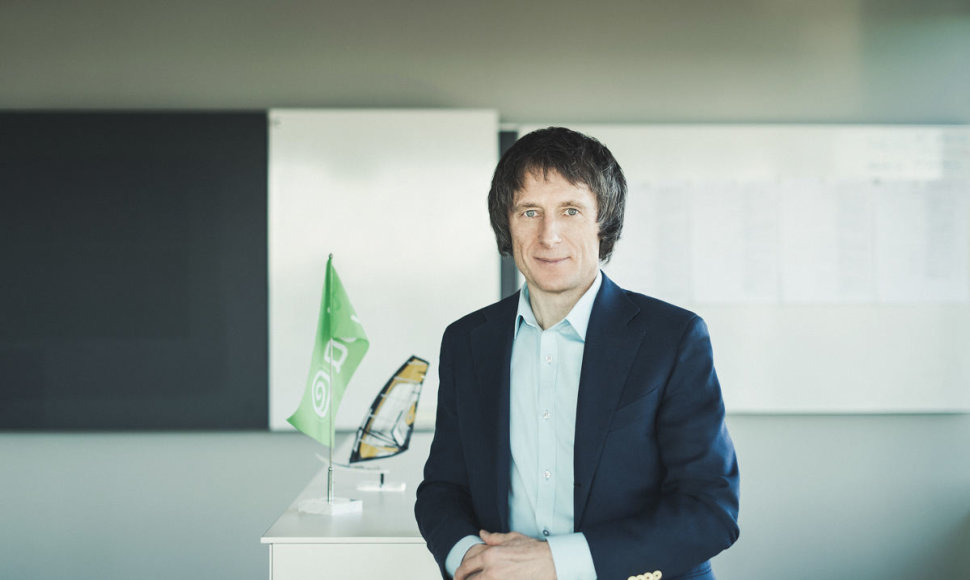New strategic direction stresses sustainability and ecology
“For some time, the SBA Group has been looking for an additional business area that offers synergy with our existing businesses and fits our values and approach. The construction sector is conservative and to a large extent not innovative enough. I’m not afraid to say that we aim to create and offer the global market a new generation concept for developing buildings. Heavy emphasis will be placed on innovations, with environmental friendliness as the top priority,” says SBA President Arūnas Martinkevičius. “Our ambition is to become the world’s most ecological producer and developer of residential buildings and spaces for other uses.”
Modular buildings: a solution to lack of housing and to climate change
Building modular environmentally friendly multi-storey buildings would help address the problems of climate change and of housing shortages in Europe’s urban areas.
Market research shows apartment shortages in Western Europe and the Nordic region number in the hundreds of thousands or even millions. The problem is being exacerbated by rapid urbanization, the aging of society and the multiplication of single-person households. At the same time, too little housing is being built: most Western European countries have a lack of construction workers and due to particularly low productivity the sector is unable to satisfy the growing demand. Modular buildings would reduce the housing shortage through faster automated production, more detailed design, stricter quality control, more efficient process management and more accurate budgeting.
Compared to traditional construction, SBA Modular is intent on shortening the whole building project life cycle by up to 50 percent. The factory will aim to produce 90 percent-complete fully finished residential spaces with optional interior decorating and furniture.
The modular building sector conforms to the principles of a circular economy and sustainable use of resources. Research shows that modular construction emits only half the greenhouse gases over the entire value-creation chain due to its speed, minimal waste and use of renewable materials. According to the United Nations Environment Programme, the construction sector, including production and transport of materials, construction works and building exploitation, is responsible for 38 percent of the world’s carbon dioxide emissions that give rise to the greenhouse effect.
Preparations for the new business are well underway
The SBA Group has worked on the new business direction with Boston Consulting Group.
“We worked with a strong team, with professionals from different countries and cultures. They clearly underlined this new business model’s impact on creating a cleaner world. This business area will fit perfectly in the SBA Group: it lets us take maximum advantage of both the competencies we’ve accumulated in manufacturing over many years and our experience carrying out complex and innovative real estate projects. The synergy of these competencies provides a solid foundation for growth, so we plan for the new sector to be a significant part of the SBA Group, accounting for about a fourth of the group’s sales within several years,” Arūnas Martinkevičius notes.
Investments in the new factory will total up to 50 million euros. SBA Modular will have a significant impact on its regional community, with plans once underway to employ approximately 450 persons.
Paulius Nevinksas, Head of Business Development at the SBA Group, has been appointed Director of the newly established SBA Modular. He notes that SBA’s intense preparations for the new business have been underway since last year: a highly motivate core team is already in place, and over the last several months intensive conversations have been held with potential partners and customers.
“Things are moving at maximum speed. We’re currently deciding on the site for our greenfield investment and, simultaneously, the factory buildings and production lines are being designed and the product’s technological basis is being developed. Construction of the factory is expected to be complete within a couple of years,” SBA Modular Director Paulius Nevinksas says. “We are very happy with the team we’ve put together, their values and ambition to create homes for people based on bold innovations. It’s particularly important our customers feel and know that in buying a place to live they’re contributing to keeping our planet cleaner.”
It is planned that most of what the new factory produces will be exported to the Nordic countries, Germany and other Western European markets.
SBA, one of Lithuania’s largest business groups, operates in the real estate, textile and furniture production sectors. The group’s companies have more than 5,000 employees. SBA owns the real estate innovations company Urban Inventors, which is the developer of the Green Hall business valley in Vilnius and the BLC Business Centre in Kaunas, as well as the investment management company Capitalica Asset Management which owns the Kauno Dokas Business Centre in Kaunas and “135” in Vilnius and is developing the Verde modern office complex in Riga’s Skanste district near the city centre. In the furniture sector, group company SBA Baldų Kompanija owns Klaipėdos Baldai, Šilutės Baldai, Germanika, Visagino Linija, Mebelain, and Kauno Baldai. SBA’s presence in the textile sector comprises Utenos Trikotažas with its subsidiaries Šatrija and Mrija.












